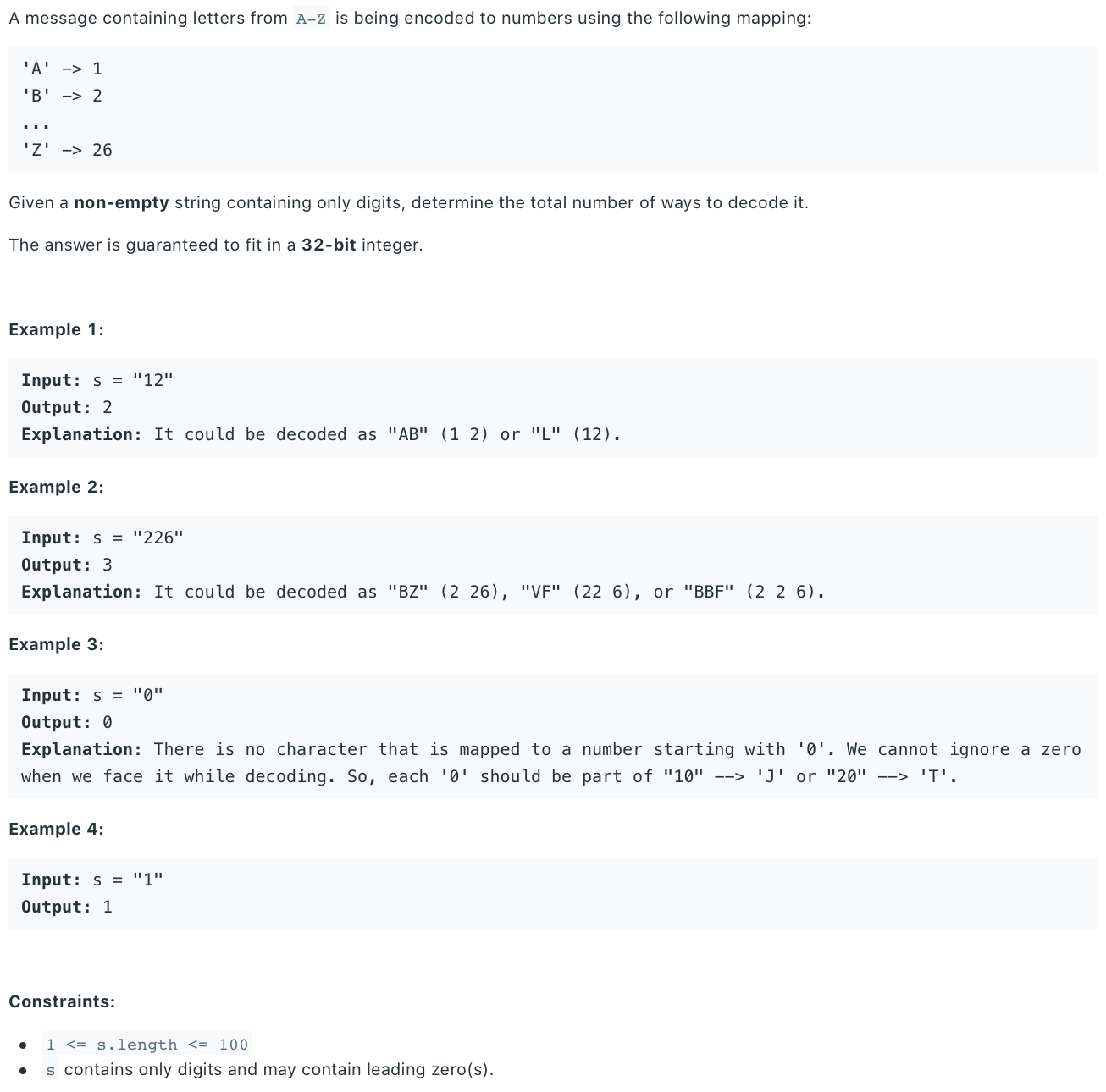Decode Ways
franklinqin0 StringDP

# Solution
Both solutions take linear runtime.
# Recursive DP
class Solution:
@lru_cache(maxsize=None)
def helper(self, idx, s):
if idx == len(s):
return 1
if s[idx] == "0":
return 0
if idx == len(s)-1:
return 1
res = self.helper(idx+1, s)
if int(s[idx : idx+2]) <= 26:
res += self.helper(idx+2, s)
return res
def numDecodings(self, s: str) -> int:
return self.helper(0, s)
1
2
3
4
5
6
7
8
9
10
11
12
13
14
15
16
2
3
4
5
6
7
8
9
10
11
12
13
14
15
16
# Iterative DP
# Linear Space
def numDecodings(self, s: str) -> int:
n = len(s)
dp = [0 for _ in range(n+1)]
dp[0] = 1 # to start the process
dp[1] = 0 if s[0] == '0' else 1
for i in range(2, len(dp)):
if s[i - 1] != '0':
dp[i] = dp[i-1]
two_digits = int(s[i-2 : i])
if two_digits >= 10 and two_digits <= 26:
dp[i] += dp[i-2]
return dp[n]
1
2
3
4
5
6
7
8
9
10
11
12
13
14
15
2
3
4
5
6
7
8
9
10
11
12
13
14
15
# Constant Space
def numDecodings(self, s: str) -> int:
if not s:
return 0
fst, snd = 1, 0
if s[0] != '0':
snd = 1
for i in range(2, len(s) + 1):
temp = snd
if s[i-1] == '0':
snd = 0
two_digits = int(s[i-2:i])
if two_digits >= 10 and two_digits <= 26:
snd += fst
fst = temp
return snd
1
2
3
4
5
6
7
8
9
10
11
12
13
14
15
16
17
2
3
4
5
6
7
8
9
10
11
12
13
14
15
16
17